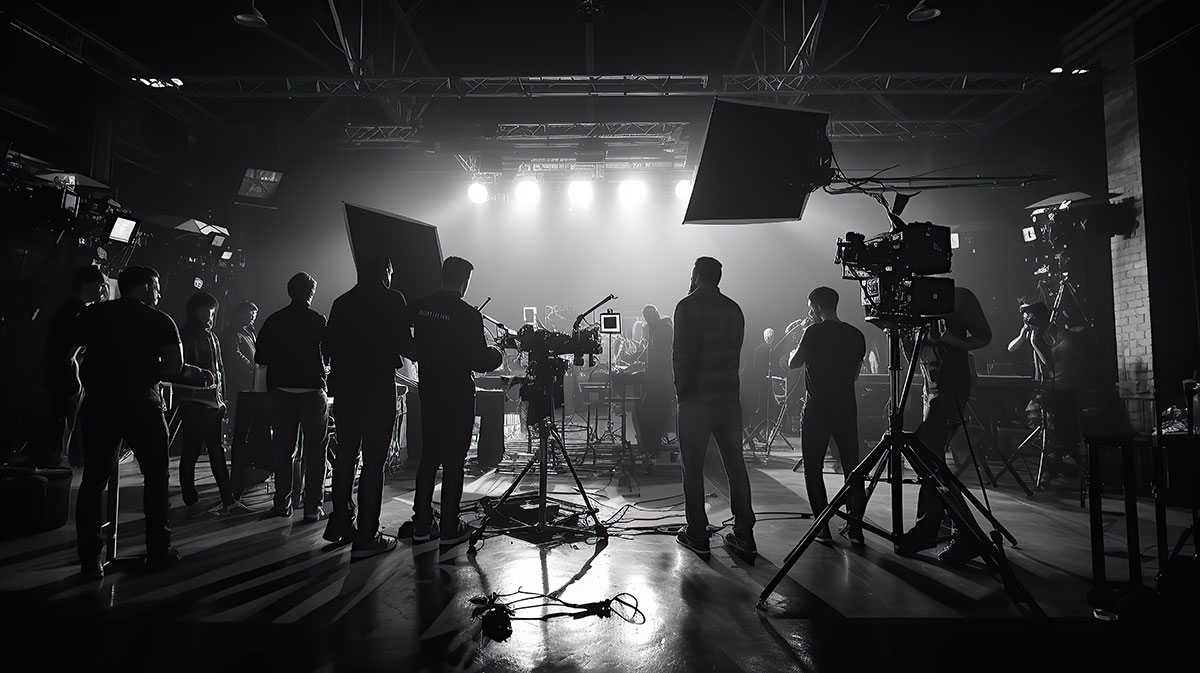When I look back at my journey in this business, I think about how different things might’ve been if I had a blueprint. Someone who looked like me, talked like me, and had already walked the path I was trying to navigate. Someone to say, “Here’s what to expect—and here’s how to handle it.”
Now, after decades of writing, producing, directing, and surviving the ups and downs of Hollywood, I know just how powerful mentorship can be—especially for young Black creatives. And that’s why I’ve made it a personal mission to reach back, lift up, and help guide the next generation.
Why Mentorship Matters
This industry is tough. That’s not news to anyone. But for Black creators, it can be even tougher. We’ve got the talent. We’ve got the vision. But often, we’re left out of the rooms where decisions are made. Or we’re invited in, but expected to conform to someone else’s version of what our stories should be.
That’s where mentorship makes the difference. It’s about more than just giving advice. It’s about creating access. It’s about teaching the business side of creativity—how to protect your work, negotiate contracts, maintain ownership, and build a sustainable career. It’s also about helping someone find their voice and stay true to it in a space that will try to mold them into something else.
When I was coming up, I didn’t have many people to call for that kind of guidance. I had to learn through experience, which often meant learning the hard way. Now that I’ve been blessed with the opportunity to create and lead multiple shows, it’s my responsibility to pass down what I’ve learned.
Seeing the Talent in the Room
One of the things I love most about producing is working with new voices. When I walk onto a set or into a writers’ room and see young Black creatives stepping up, it gives me hope for the future of our industry. These are people with fresh ideas, hungry energy, and real passion. Sometimes all they need is someone to believe in them, to give them a shot, and to remind them that their perspective matters.
I’ve always made it a point to hire and promote Black talent—not out of obligation, but because the talent is there. On shows like Love That Girl!, Family Time, Millennials, and Partners in Rhyme, I’ve had the privilege of working with actors, writers, directors, and crew members who are at the beginning of their journeys. And I don’t just want them to do the job—I want them to understand how the business works and how to build something for themselves.
Building More Than Just Shows
Over the years, I’ve realized that I’m not just building shows—I’m building a pipeline. A system that brings in new talent, develops their skills, and sets them up for long-term success. Whether it’s a young PA learning the ropes on set or a first-time writer getting their shot in the room, I want people to leave my productions feeling like they grew—not just professionally, but personally.
That’s a big part of why I’m releasing my book, The Hollywood Blueprint, later this year. It’s a behind-the-scenes look at how I’ve navigated the industry—from the early days to now. But it’s also a practical guide for anyone trying to break in. It’s filled with real stories, real advice, and real game. Because I remember what it felt like to be the guy on the outside looking in, and I want to change that narrative for the next generation.
Creating Space for Black Stories
Mentoring Black creators isn’t just about helping individuals—it’s about changing the landscape. The more writers, producers, and directors we have in positions of power, the more diverse and authentic our stories will be. We need stories that reflect our full humanity—our joy, our struggles, our humor, our love.
I’ve made it my mission to create spaces where Black stories thrive. Whether it’s a sitcom that shows a loving Black family navigating everyday life, or a comedy that speaks to the culture with heart and humor, my goal has always been to represent us fully. And I want to see even more of that in the future—from new voices with new perspectives.
I’m not here to just take up space. I’m here to create space. And that starts with mentorship. It starts with reaching back, answering the call, showing up, and pouring into the next wave of talent. It starts with being intentional about who we bring into the room—and how we prepare them to eventually lead their own.
The future of Hollywood depends on the seeds we plant now. If we want more diverse stories, more representation, and more ownership in our community, then we’ve got to be willing to guide and grow the people who are coming up next.
For me, that’s the real legacy—not just what I’ve done, but who I’ve helped along the way. Because at the end of the day, success means nothing if you’re the only one at the top. I’d rather build a village—one that creates, uplifts, and tells our stories our way.
And I’m just getting started.
